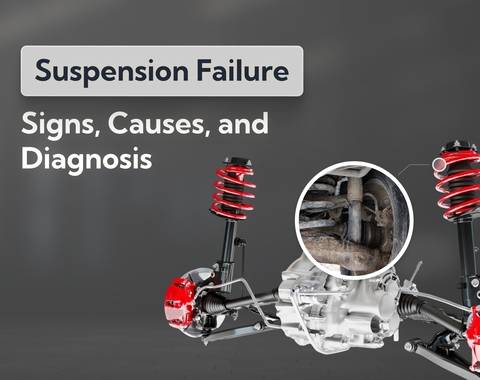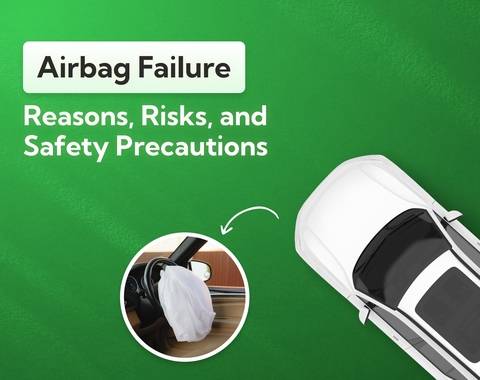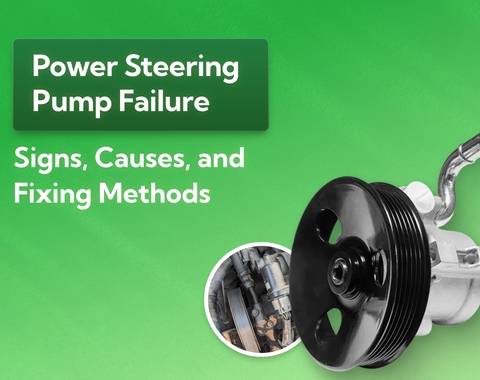Car Finance Types (Detailed Breakdown)
When it comes to car finance, it's hard to even know where to start. From PCP and HP to PCH and personal loans, each option comes with its own pros, cons and costs. This guide breaks down the main types of car finance in plain English so you can choose the one that works best for you.
Last updated: 16th October, 2025

Anthony Sharkey is COO at New Reg Limited (Car.co.uk, Trader.co.uk, Garage.co.uk), driving innovation in vehicle recycling, logistics, and customer experience.

Listen to this story
Should you opt for a hire purchase agreement or arrange to buy a car by using a personal loan? What does PCP stand for, what does it involve, and what is the difference between that and a leasing plan? Interested in seeing what finance options are available to you?
In this helpful guide, we talk you through each type of car finance to help you understand what you’re agreeing to before you sign on the dotted line.
What's in this article
What is a hire purchase agreement?
Hire, then purchase
If you break down the name, you can see what is meant by the term hire purchase (HP). The first part of the term, hire, reflects the fact that you initially hire the car from the finance company, while the repayments are being made. Then at the end of the agreement, you have the option to purchase the vehicle.
Set monthly payments
When you sign up to an HP agreement, you make a set number of monthly payments to the lender over a pre-determined period of time - usually several years. When all the payments have been made, you can opt to own the car if you wish.
Registered keeper
Unlike some other forms of car finance, a hire purchase agreement allows you to be named as the car’s registered keeper - so although you wouldn’t fully own the car until the finance has been settled, you are recognised by the DVLA as its registered keeper. As such, your name will be on the registration documents.
The final fee
By the end of the HP term, you will have paid for the car but you need to fork out an admin fee if you want to own it. This can range from as little as £1 up to several hundred pounds. It’s important, therefore, to confirm this amount before signing up for an HP plan.
Optional deposit
Some HP plans also allow the option of paying a deposit. If you do this, it should reduce your monthly repayments. It could also affect the amount of the final admin fee due.
Why choose HP?
If you would like to own the car after a set period of time, then HP can be a good option. As it involves fixed monthly sums, it can also help you to manage your finances as you know exactly what you’ll be paying, when and how long for.
Can I use a personal loan to buy a car?
What is a personal loan?
A personal loan, unlike some other types of borrowing, is not secured on the car. This is why it is often referred to as an ‘unsecured’ loan. Where a secured or fixed term loan treats the car as an asset the finance company can claim on, this is not the case with a personal loan.
Taking ownership
You are the car’s owner from the outset if you buy it using a personal loan. This means that you’re free, from the very start, to modify or sell the car, as it’s entirely yours to do with as you wish. Conversely, with a secured loan, you cannot sell or modify the car until the finance has been completely repaid.
Good credit
A potential pitfall that applies to personal loans is their availability - especially at a decent rate of interest. As the lender does not have the car as collateral, they will not offer as competitive a rate as they usually do for a secured loan. It can also be difficult to get a good rate unless you have a great credit score.
Consumer protection
One drawback of personal loans is the associated lack of consumer protection. When you sign up to other kinds of car finance, you are given a certain level of protection by the Consumer Rights Act. This does not apply when you buy using a personal loan, as the vehicle itself does not form part of the agreement. With a personal loan, you have simply borrowed money from a bank or other lender, and what you buy with that sum - whether that’s a car or something else - is entirely up to you.
Why opt for a personal loan?
A personal loan gives you the freedom to modify or sell the car if you want to, as you’re its owner from the very beginning. It can be a good option if you have a good credit rating, and the lack of restrictions means it could be a good option for anyone who wants to buy an older car, such as a classic vehicle, or one with a high mileage.
What's PCP finance?
Personal Contract Plan
PCP stands for personal contract purchase. With this type of plan, you can pay an optional deposit if you wish. You then pay fixed monthly amounts to the lender for a set length of time - usually split over several years. At the end of this time, you can pay a lump sum if you want to keep the car, or you can return it.
Lower monthly payments
One advantage of a PCP is that you can usually secure a better deal on your monthly payments than you would with an HP agreement. This means you may be able to drive a better, more expensive car than with an HP plan - or you can pay less per month.
The balloon payment
The lump sum due at the end of the term can be a drawback of a PCP package. This will cost more than the admin fee paid at the end of an HP plan, so it can for some prove prohibitively expensive. It is best, therefore, to factor this in right from the outset if you think you would ultimately like to own the car.
Condition and mileage
Returning a car financed via PCP may also be subject to certain conditions - namely its mileage and condition. You might find you can only return the car if its condition is acceptable and if the mileage has stayed under a set limit. Once more, this is a reason to check the small print very carefully.
Why pick PCP?
If you like to drive a newer car and thus want to change your vehicle often, PCP may suit your needs very nicely. If you have no intention of keeping the car at the end, you won’t have to worry about depreciation. It can, for some, give access to a better car for a more affordable monthly amount.
Lease or PCP?
An alternative
If you are considering taking out a PCP, it is well worth considering another very similar form of finance. A Personal Contract Hire (PCH) agreement works in many ways like a PCP, and it may be a cheaper option.
What is PCH?
If you are likely to be one of the many people who don’t end up keeping the car at the end of a PCP agreement, then it may prove more cost-effective to opt for PCH instead. This is because the monthly payments are likely to be lower.
A word of caution
If you cannot repay your PCH instalments, you may still be liable for the entire finance cost. This means that cancelling the finance, returning the car and paying no more might not even be an option with a PCH package.
No option to own
A PCH agreement does not give you the option of retaining the car at the end, so you cannot ever take ownership of it.
What the experts say

Steven Jackson OBE
What is the difference between PCP and a Personal Lease?
Ownership
The main difference between a PCP and a PCH - or personal lease - agreement is the issue of ownership. You can never own the car with a PCH plan, whereas a PCP does give you this option.
Guaranteed Minimum Future Value
Once again, the balloon payment pops up. This sum is the amount due to the PCP lender in exchange for keeping the car. It can also be referred to as the Guaranteed Minimum Future Value (GMFV). This amount is payable on top of any deposit and the monthly instalments already paid and can range from several hundred to several thousand pounds.
Which is cheaper?
Deciding whether PCP or PCH will be cheaper depends on how you work it out. If you look at the monthly cost, then PCH payments might be higher. This is because you borrow an amount equivalent to the entire value of the car with PCH, whereas with PCP you only borrow part of its value. It’s important to compare the whole sum payable with each option, as this could work out less with PCH - even though the monthly payments may be more.
If you cannot pay
There is a difference between how things proceed in the event of non-payment. With both options, the lender is able to repossess the car, but with PCP they cannot do this once you have paid a third or more of the total sum due unless they have a court order.
About Car.co.uk

Share on
Latest news & blogs










